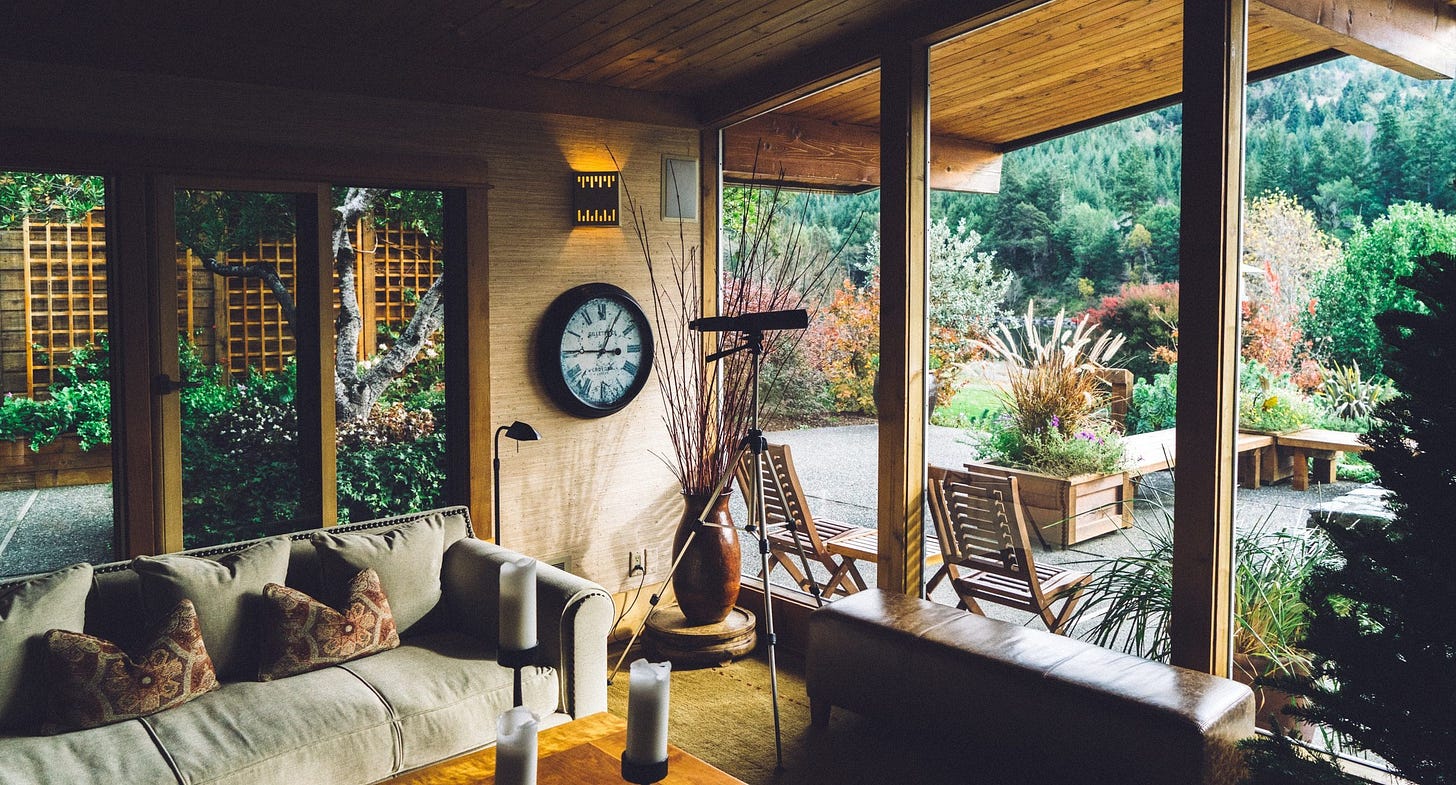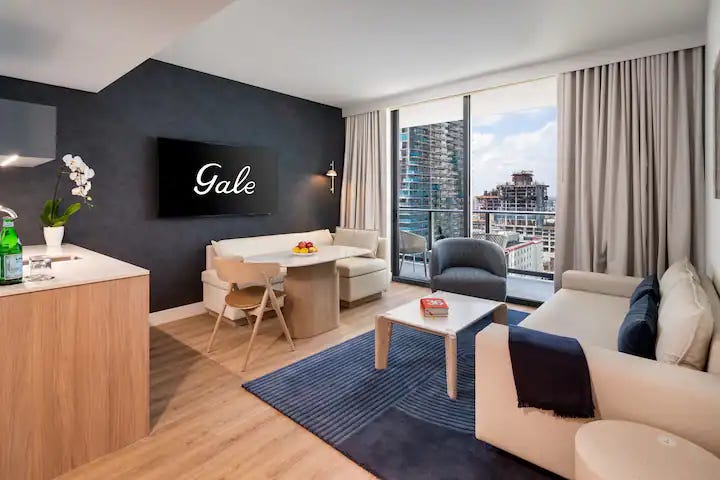Airbnb-Friendly Condos are Both Brilliant and Bad
Airbnb launches a new program called Airbnb-friendly Condos (AFC)
Hey readers, hope you had a great Thanksgiving. I would love it if you’d fill out this annual reader survey — I will be sharing the results back to you all in January.
If you’ve been enjoying this newsletter all year, I’d really love it if you’d support this work by hitting that subscribe button below and upgrading! Before heading on a holiday break in mid-December, I’ll be sharing the first details of 2025 subscriber events with paid subscribers.
I have a love-hate relationship with Airbnb. It’s hard to overstate how much better staying at an Airbnb is than a hotel when traveling with my family. I love being able to cook meals in a house and stay in a real neighborhood.
I even tried being an Airbnb host for a few months, but I also saw firsthand how ethically challenging Airbnb can be. Let’s be honest: Airbnb makes the commodification of housing too easy. Many Airbnbs in residential neighborhoods are upsetting to neighbors who want to be surrounded by regular people, not visitors. Communities want landlords to be housing people, not just maximizing their investment. And although we can blame the housing shortage on NIMBYs, bad zoning, bad building departments, and a host of other issues, Airbnbs do take regular housing out of the market and are just one more thing making the housing crisis worse.
You could look at that problem and suggest we make running an Airbnb harder or impossible. Cities from Berlin to Santa Monica have tried banning them. A little over a year ago, New York City enacted a new law that restricted whole-home Airbnbs to long-term stays. The number of Airbnb listings plummeted, but there was no new supply of hotels. Unsurprisingly, New York City’s average hotel prices now are at record highs of $417 per night. The winners were not people needing housing, not tourists, but hotels. Ironically, putting some hotels out of business might do more to impact the housing crisis. During the pandemic, many third-rate hotels were quickly turned into housing for the homeless.
It seems some of the best solutions to Airbnb include limiting the percentage of housing units that can be short-term rentals in a neighborhood (this prevents investors from buying homes solely to turn them into Airbnbs), and focusing Airbnbs on time-limited events, such as the Olympics, which enables more people to benefit while not permanently taking housing off the market.
But perhaps in response to the pushback Airbnb gets, the company has found another way to address the issue: partnering with developers on real estate projects.
Airbnb is becoming a developer
Airbnb clearly has sights beyond tourism. It pivoted hard during the pandemic to hosting people for longer stays, and now, about 18 percent of its bookings are for 28 days or longer. CEO Brian Chesky expects this number to grow, and the company is making moves to focus on partnerships with apartment and condo developers in addition to regular hosts.
Two years ago, the company also launched the Airbnb-friendly Apartments program. This program has been aimed at developers who see Airbnb hosting as a value-add to offer to renters, and at renters who want to Airbnb their home part of the time. According to a press release:
There are now over 750 buildings comprising over 200,000 units across the US that are part of the program, with new partners like Geolo Capital, Roundhouse, Villa Serena Communities recently joining. Airbnb-friendly Apartments now include 12 of the top 50 National Multifamily Housing Council (NMHC) Owners and 14 of the top 50 NMHC Managers.
If nothing else, Airbnb is succeeding at blurring the distinction between regular monthly rentals and staying in an Airbnb, perhaps reducing the company’s exposure to criticism and its ability to be banned. And it’s taking advantage of the fact that many newly constructed rental buildings are anonymous anyway. Few people would know if their neighbor was Airbnb’ing their place or not.
Unfortunately Airbnb also keeps on pretending it is doing its part to help people cope with the housing crisis:
“With many renters continuing to find themselves cost burdened, AFA offers a valuable opportunity to earn income through Airbnb while they’re away. The sustained growth of AFA and the interest from partners to expand internationally demonstrate the versatility of this model. I’m excited to see it flourish,” said Jesse Stein, Global Head of Real Estate at Airbnb.
Airbnb should really give up on the idea that it’s helping cost-burdened people. If your place is nice enough to list on Airbnb, and you can afford to travel long enough to rent out your apartment, you’re probably not the cost-burdened person we worry about. Airbnb should instead own what it’s really doing — enabling homeowners to monetize housing, at scale — and the public should have a deeper conversation about just how far to take that American dream of wealth creation through housing.
Airbnb-friendly Condos “Make Too Much Sense”
This past week, Airbnb launched something called Airbnb-friendly Condos. The program is launching in Miami — a city that is losing thousands of regular residents each year, but still thriving as it wins over tourists and second-home residents. This kind of development, which delivers high ROI in the short term, is well-suited to Miami and other cities that are now too expensive and too perilous for regular homeownership.
Below the paywall I’ll explore why:
We shouldn’t demonize people monetizing housing to afford it, as we did in the past with ADUs, duplexes, and boarding houses, but Airbnb-friendly Condos are different.
Why we need more new approaches to wealth creation that have shared benefits, rather than housing, which is benefiting a smaller and wealthier subset of the population








